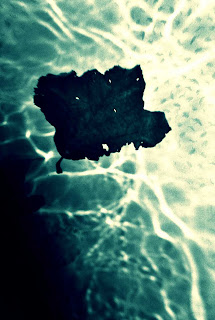Keep your adventures alive...

I wanted to be an astronaut when I was young. When Neil Armstrong set foot on the moon I was 10 years old, growing up in a small town in the Great Lakes area and many things seemed possible. Of course as time moves on all of the adventures of youth get tempered by the realities and logistics of life. Things change. Each one of you reading this may have had or still have these “adventures” that exist in our hearts. We never truly give them up; they will sometimes morph into other forms of adventures. Retain you your sense of adventure no matter what scale it ends up being. Keep the “Huck Finn” engaged in your heart and keep building those metaphorical wooden rafts that help you float your dreams to the next destination. I met a 93 year old woman in a Tai Chi group the other day that, I could tell by her eyes, is still building rafts.
ablution • \uh-BLOO-shun\ • noun
1: the washing of one's body or part of it (as in a religious rite) b plural : the act or action of bathing
2 plural, British : a building housing bathing and toilet facilities on a military base
Example Sentence:
The river that flowed past the campsite had a secluded nook where we could take care of our ablutions in privacy.
Did you know?
"Ablution" derives via Middle French and Middle English from the Latin verb "abluere," meaning "to wash away," formed from the prefix "ab-" ("away, off") and "lavere" ("to wash"). Early uses of the word occurred in contexts of alchemy and chemistry. It was first used of washing as a religious rite by Thomas More in The Apologye Made by Hym (1533). Many religions include some kind of washing of the body in their rituals, usually as a form of purification or dedication. The use of the term to refer to the action of washing one's body without any religious significance did not take hold in English until the mid-18th century
![]()

No Comment
Post a Comment